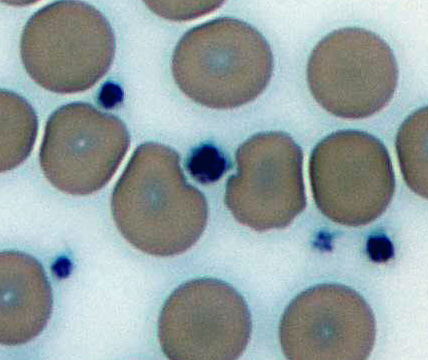Cambridge Enterprise is pleased to announce that it has licensed intellectual property to Platelet BioGenesis, an American biotech start-up developing a method for producing platelets, obviating the need for human blood donation.
The company has simultaneously licensed intellectual property from Partners Healthcare. Together the IP covers the entire differentiation process from stem cell to platelet. The two licenses strengthen Platelet BioGenesis’s IP portfolio and provide a scalable process to produce human platelets from pluripotent stem cells using a serum-free and feeder-cell-free process.
Platelets, the cells in the blood that stop bleeding, are a critical first-line treatment for cancer and surgery and comprise a $20bn global industry. Growing demand is severely limited by viable platelet shelf-life (<2 days), platelet unit availability, and bacterial/viral contamination, because they are sourced entirely from human volunteer donors.
The licenses in question cover nearly a decade of work making human platelets from pluripotent stem cells ex vivo by Dr Cedric Ghevaert of the Department of Haematology and the Stem Cell Institute, University of Cambridge, and Drs Italiano and Thon at Brigham and Women’s Hospital and Harvard Medical School. Proof-of-concept studies describing this work have been published in international peer-reviewed journals and may be seen on the Platelet BioGenesis website.
“Translating basic scientific discoveries into tangible medical progress is always a real challenge. Joining forces with Platelet BioGenesis gives us a real and exciting opportunity to one day provide hospitals with platelets for transfusion without having to rely entirely on blood donations”, says Dr Ghevaert.
“What we are trying to do is very hard”, says Dr Joseph Italiano. “No lab is an island, and it will take all of us working together to see this through. I’m very excited by how much progress we’re making.”
“This represents the culmination of a tremendous amount of effort by the team at Platelet BioGenesis and our partnering institutions to consolidate licenses to multiple patents that together create a very strong IP portfolio. In the end, what has shone through most brightly is the enthusiasm by all parties to see their contributions advanced in a way that will provide relief for patients as quickly as possible”, says Dr Jonathan Thon.
The license agreements constitute a growing effort by Platelet BioGenesis to combine leading advances in platelet production under a commercial cell culture process, and bring together top platelet scientists under a shared aim to revolutionise the platelet therapeutic space.
By supplanting the volunteer donor, Platelet BioGenesis intends to make platelets that are cheaper, safer and available on demand. Its goals are to replace donor-derived platelets, expand platelet transfusions beyond first-world countries and support new and restricted-growth markets.
Dr Ghevaert’s programme of research is based on the production of blood cells in vitro from haematopoietic stem cells (HSCs) or pluripotent stem cells (PSCs) with a particular interest in platelet and megakaryocyte biology. His group has a keen interest in translating biological discoveries into applications for transfusion medicine and uses a multidisciplinary approach that encompasses cell biology, engineering, and computational biology. His work has been supported by NHS Blood and Transplant and the British Heart Foundation. Dr Ghevaert has joined Platelet BioGenesis as a consultant.











